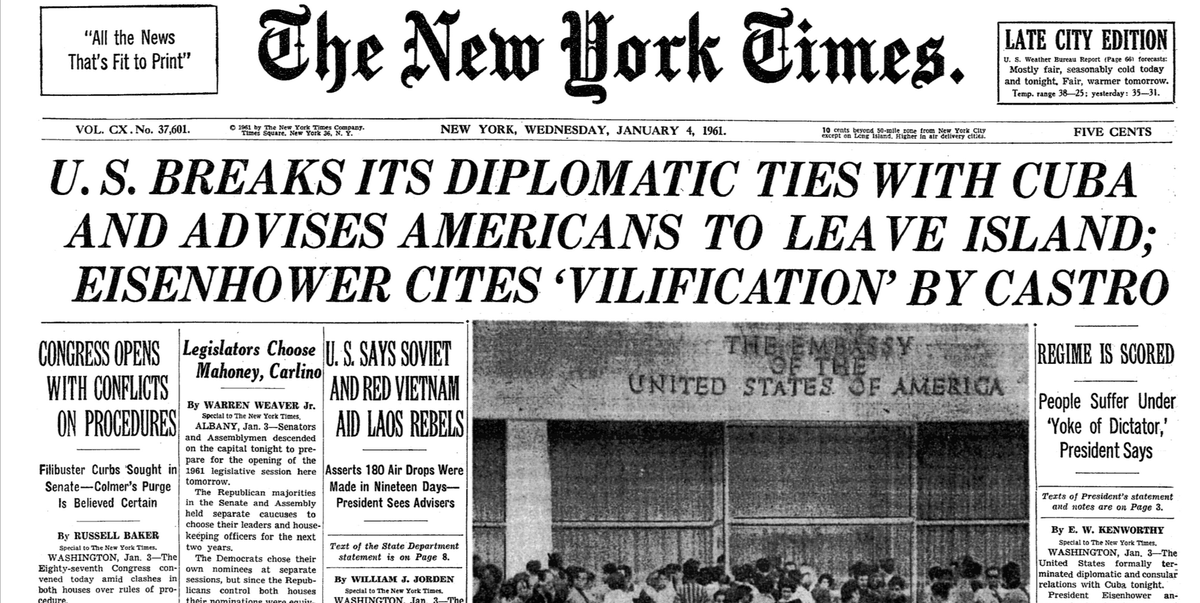Introduction:
January 3, 1961, marked a significant turning point in the Cold War era – the day the United States severed diplomatic relations with Cuba. This decision, a response to the escalating tension following Fidel Castro’s rise to power and Cuba’s alignment with the Soviet Union, reshaped geopolitical dynamics in the Western Hemisphere and had lasting impacts on international relations.
The Backdrop of Tension:
The story of U.S.-Cuba relations is one of complex geopolitics, ideological clashes, and economic interests. Following the Cuban Revolution of 1959, which saw Fidel Castro overthrowing the Batista regime, Cuba began to establish closer ties with the Soviet Union. This alignment with a key Cold War adversary raised alarms in the United States, which had significant economic and political interests in Cuba.
The Breakdown of Relations:
As Castro’s government began nationalizing American-owned properties and companies in Cuba, tensions escalated. The U.S. responded with trade embargoes and diplomatic pressure. The situation reached a boiling point when the U.S. became increasingly concerned about the Soviet influence in its backyard. In a decisive move, President Dwight D. Eisenhower made the call to sever diplomatic ties with Cuba on January 3, 1961, closing the U.S. Embassy in Havana.

The Aftermath and Global Impact:
The severing of diplomatic relations led to decades of animosity between the two nations. It set the stage for the infamous Bay of Pigs Invasion in April 1961 and the Cuban Missile Crisis in 1962, the closest the Cold War came to escalating into a full-scale nuclear war. Cuba’s isolation from the U.S. pushed it further into the arms of the Soviet Union, affecting the balance of power in the Cold War.
A Lasting Cold War Scar:
For over five decades, the diplomatic rift cast a long shadow over U.S.-Latin American relations. It affected the lives of millions, especially Cuban immigrants and their families in the U.S. The embargo impacted the Cuban economy and became a symbol of the Cold War’s enduring legacy.
A Thaw in Relations:
It was not until December 2014 that a historic announcement by President Barack Obama marked the beginning of restoring diplomatic relations, a move that was both celebrated and criticized. The U.S. Embassy in Havana was officially reopened on July 20, 2015, symbolizing a new chapter in U.S.-Cuba relations.
Conclusion:
The severance of diplomatic ties between the United States and Cuba on January 3, 1961, remains a significant event in the annals of international relations. It serves as a reminder of the complexities of global politics and the lasting impacts of ideological conflicts. As we reflect on this historical event, it underscores the importance of diplomacy and dialogue in navigating the intricate tapestry of international relationships.












What do you think?
It is nice to know your opinion. Leave a comment.